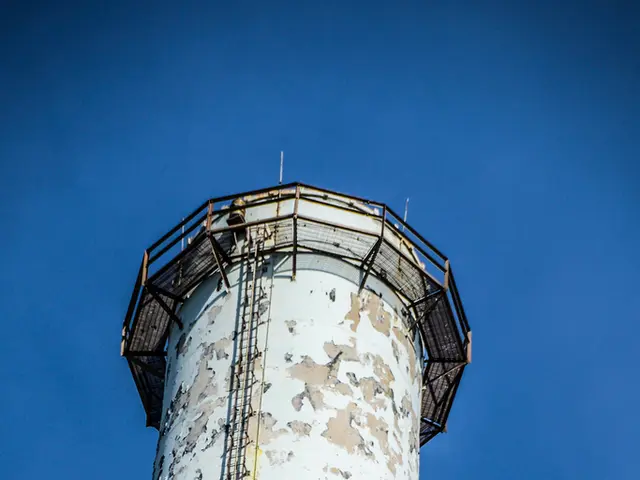Anticipated decrease in French nuclear energy generation set for Wednesday
Heatwave Puts Pressure on France's Nuclear Power Plants
France's Bugey 3 nuclear reactor is set to reduce its power production this week due to high river temperatures that affect its cooling system. This reduction is necessary to comply with environmental safety measures and to avoid discharging overheated water into the Rhône river, according to data from EDF.
The high water temperature has caused multiple warnings and power reduction requests at several nuclear plants along the Rhône and Garonne rivers. The heatwave, which has elevated river temperatures, has posed challenges for the country's nuclear power plants, particularly in terms of cooling water intake.
The Bugey 3 reactor, which has a maximum capacity of 910 MW, will be reduced to 410 MW from 2:30 p.m. to midnight on Wednesday. This reduction is required to maintain safe environmental conditions, as the high water temperatures reduce cooling efficiency.
The heatwave is not only affecting the Bugey 3 reactor but also multiple nuclear power plants across France. Warnings of power reductions have been issued, particularly on the Rhone river in the east and the Garonne in the west. The high water temperature warnings for the Saint Alban plant and the Golfech site have been moved to August 14, but restrictions have not yet been issued.
Despite the power reductions, average temperatures in France are expected to continue to peak throughout the week, reaching a high of 28.5 degrees Celsius on Saturday. However, August is the main holiday season in France, which often results in limited electricity demand.
It's worth noting that nuclear power accounts for about 70 percent of total French power consumption annually, according to LSEG data. This means that the reductions in power production at the Bugey 3 reactor and other nuclear plants will have a significant impact on the country's energy supply.
In conclusion, the ongoing heatwave in France is causing challenges for the country's nuclear power plants, particularly in terms of cooling water intake. The high water temperatures are forcing operators to reduce power production temporarily to maintain safe environmental conditions and to protect local aquatic fauna and flora.
Read also:
- Stone mining has transformed the once renowned 'Sada Pathor' into a desolate, post-apocalyptic landscape.
- Revised Tax Policy for Motor Vehicles Pushed for Greater Eco-friendliness, Suggested by Court Auditors
- Exploration of Hydrogen Bonding's Practicality: A Crucial Leap for Future Economies and Climate Conservation
- International Climate Talks in Brazil Face Intensified Pressure as United States Opt Out of COP30 Conference








